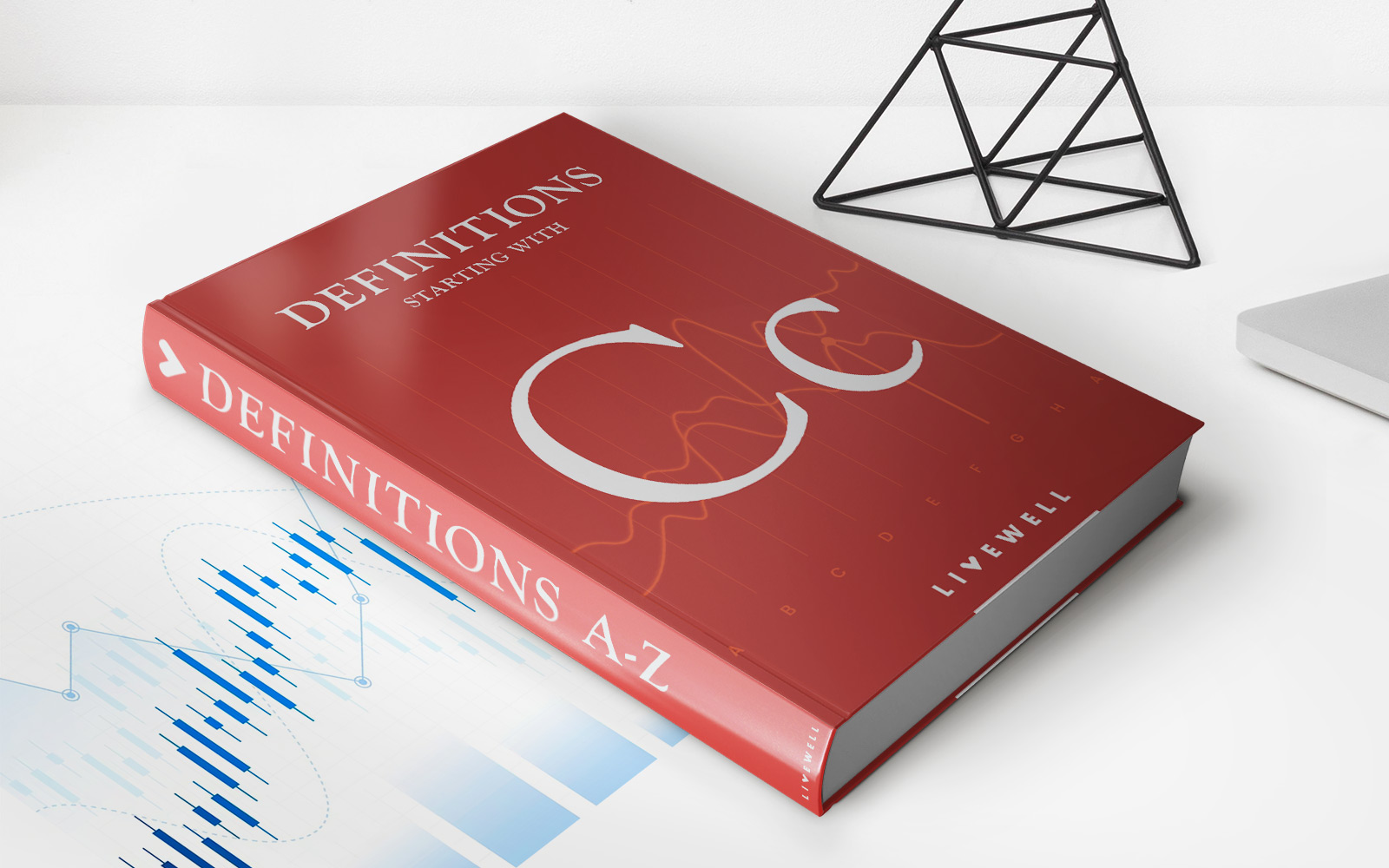Home>Finance>What Happens If A Life Insurance Policy Has No Beneficiary?


Finance
What Happens If A Life Insurance Policy Has No Beneficiary?
Modified: February 21, 2024
Unsure what happens if a life insurance policy doesn't have a beneficiary? Discover the financial implications and steps to take in this informative guide on finance.
(Many of the links in this article redirect to a specific reviewed product. Your purchase of these products through affiliate links helps to generate commission for LiveWell, at no extra cost. Learn more)
Table of Contents
Introduction
Life insurance is an essential financial tool that provides a sense of security and peace of mind to individuals and their loved ones. It serves as a financial safety net, ensuring that in the event of the policyholder’s death, their beneficiaries will receive a lump sum payment or regular income to cover expenses and maintain their standard of living.
One crucial aspect of a life insurance policy is the designation of a beneficiary, as this determines who will receive the death benefit. A beneficiary can be a spouse, child, relative, or even a charitable organization. It is important to carefully consider and select a beneficiary when purchasing a life insurance policy, as the choice will have significant consequences.
However, what happens if a life insurance policy does not have a designated beneficiary? This scenario can occur due to oversight, changes in personal circumstances, or simply forgetting to update the policy’s beneficiary designation. In such cases, it is essential to understand the implications and take appropriate steps to ensure the proper distribution of the policy’s proceeds.
Understanding Life Insurance Beneficiaries
A life insurance beneficiary is the individual or entity designated to receive the death benefit from a life insurance policy. The beneficiary is typically named by the policyholder when the policy is purchased, but it can be changed at any time during the policy’s lifespan.
Beneficiaries can be categorized into primary and contingent beneficiaries. The primary beneficiary is the first in line to receive the death benefit, while contingent beneficiaries are the backup recipients if the primary beneficiary predeceases the policyholder or is unable to receive the proceeds for any reason.
Policyholders have the option to designate multiple beneficiaries and specify the percentage or amount that each will receive. This allows for flexible distribution based on the policyholder’s wishes and personal circumstances. It is important to regularly review and update beneficiary designations to ensure they reflect the policyholder’s current intentions and align with any changes in personal relationships or situations.
When selecting a beneficiary, it is essential to consider their financial needs and the purpose of the life insurance policy. Many policyholders choose their spouse or children as primary beneficiaries to ensure financial stability and support for their loved ones in the event of their passing. Others may select family members, close friends, or even charitable organizations as beneficiaries, aiming to leave a legacy or provide financial assistance to those in need.
It is important to note that unless otherwise specified, the death benefit is typically paid out in a lump sum. However, policyholders can also choose other payout options, such as a series of installments or an annuity. These options provide flexibility and can be tailored to the unique requirements of the beneficiaries.
Overall, understanding the role and significance of beneficiaries is crucial when it comes to life insurance. By carefully selecting and regularly reviewing beneficiary designations, policyholders can ensure their loved ones are protected and financially supported in the event of their death.
Importance of Designating a Beneficiary
Designating a beneficiary for your life insurance policy is a critical step in the planning process. It ensures that the policy’s death benefit is appropriately distributed and provides financial support to the intended recipients. Here are some key reasons why designating a beneficiary is of utmost importance:
- Ensures Your Wishes Are Honored: By designating a beneficiary, you have the power to control who will receive the death benefit from your life insurance policy. This allows you to align the distribution with your desires, ensuring that your loved ones or intended beneficiaries are taken care of financially.
- Provides Financial Security: Life insurance is often purchased to provide financial protection for dependents, such as spouses, children, or other immediate family members. By designating them as beneficiaries, you can ensure that they will have the necessary funds to maintain their quality of life and cover expenses after your passing.
- Facilitates Expedited Claim Processing: When a life insurance policy has a designated beneficiary, the claims process becomes more straightforward and efficient. The insurance company knows exactly who is entitled to receive the death benefit, reducing the likelihood of disputes or delays in payout.
- Avoids State Laws Governing Intestate Distribution: If a life insurance policy does not have a designated beneficiary and the policyholder passes away, the proceeds may be subject to state laws governing intestate distribution. This can lead to a lengthy legal process and potential complications, as the court determines who the rightful beneficiaries are.
- Provides Flexibility and Control: Designating a beneficiary allows you to have control over the distribution of your life insurance proceeds. You can name primary beneficiaries as well as contingent beneficiaries, ensuring that your intended recipients are accounted for even if the primary beneficiaries are unable to receive the death benefit for any reason.
It is important to periodically review and update your beneficiary designation as life circumstances change. Significant life events such as marriage, divorce, the birth of a child, or the death of a beneficiary should prompt a thorough review and potential update of your life insurance beneficiaries.
In summary, designating a beneficiary for your life insurance policy is crucial to ensure that your wishes are honored, provide financial security to your loved ones, facilitate expedited claims processing, avoid complications of intestate distribution, and retain control over the distribution of your policy proceeds. Take the time to carefully select and regularly review your beneficiaries to align with your current circumstances and desires.
Consequences of Having No Beneficiary
Not designating a beneficiary for your life insurance policy can lead to several significant consequences. It is important to understand the potential ramifications of not having a designated beneficiary to take appropriate action. Here are some of the key consequences of not designating a beneficiary:
- Potential Delay in Claim Processing: Without a designated beneficiary, the insurance company may need to go through a more complex process to determine who should receive the death benefit. This can result in delays and additional administrative tasks, prolonging the time it takes for the beneficiaries to receive the funds.
- Lack of Control Over Distribution: If no beneficiary is named, the insurance company may have to follow state laws or default guidelines to determine the distribution of the death benefit. This may not align with your intentions or the needs of your loved ones, leaving you without control over how the funds are disbursed.
- Intestate Laws May Apply: In the absence of a designated beneficiary, the death benefit may be subject to state laws governing intestate distribution. These laws vary by jurisdiction but generally prioritize surviving family members such as spouses, children, or parents as the rightful beneficiaries. If you have specific wishes or intentions for the distribution of your life insurance proceeds, it is crucial to designate a beneficiary to ensure they are honored.
- Potential Disputes Among Potential Beneficiaries: Without a clear beneficiary designation, there may be disagreements or disputes among potential beneficiaries regarding who should receive the death benefit. This can lead to legal battles and strained relationships among family members, further complicating an already difficult time.
- Loss of Privacy: When a life insurance policy lacks a designated beneficiary, the insurer may need to involve the courts or other legal entities to determine the rightful recipients. This can result in public records and proceedings, potentially exposing personal financial information and compromising privacy.
- Risk of Unclaimed Policies: If the rightful beneficiaries cannot be identified or located, the life insurance policy proceeds may go unclaimed. This can occur if the policyholder did not regularly update their beneficiaries or failed to communicate the policy’s existence to their loved ones. Unclaimed policies can result in the loss of financial support that was intended for the beneficiaries.
To avoid these consequences and ensure the proper allocation of your life insurance benefits, it is crucial to designate a beneficiary and regularly review and update your beneficiary designation as needed. Taking these proactive steps can provide peace of mind and ensure that your loved ones are financially supported when the time comes.
Steps to Take If There is No Beneficiary
If you find yourself in a situation where your life insurance policy does not have a designated beneficiary, it is important to take the following steps to ensure the proper distribution of the death benefit:
- Contact Your Insurance Provider: Reach out to your life insurance provider as soon as possible to inform them about the absence of a designated beneficiary. They will guide you through the necessary steps and provide you with the required forms and documentation to address the situation.
- Review Estate Planning Documents: Consult your estate planning documents, such as your will or trust, to determine if there are any provisions relating to your life insurance policy. These documents may provide guidance on the distribution of assets, including life insurance proceeds, in the absence of a specified beneficiary.
- Consider Legal Advice: Depending on your specific circumstances and the laws in your jurisdiction, it may be advisable to seek legal advice from an attorney who specializes in estate planning or probate. They can help you navigate the legal complexities and ensure that the death benefit is distributed in accordance with your wishes and applicable laws.
- Update Your Beneficiary Designation: If you do not have a designated beneficiary, now is the perfect time to review and update your life insurance policy’s beneficiary designation. Consider your current relationships and financial responsibilities, and select one or more beneficiaries who align with your intentions and the purpose of your life insurance coverage.
- Communicate with Family Members: Inform your immediate family members about the absence of a designated beneficiary and your intentions regarding the distribution of the death benefit. Their understanding and cooperation can help avoid potential disputes and ensure that your wishes are honored.
- Consider Estate Planning Strategies: If you have a complex financial situation or unique circumstances, you may want to explore estate planning strategies, such as setting up a trust or establishing a foundation, to ensure the orderly distribution of your assets, including life insurance proceeds.
It is important to take prompt action to address the absence of a beneficiary in your life insurance policy. By following these steps and seeking appropriate advice, you can ensure that the death benefit is distributed according to your wishes and provide support for your loved ones during a challenging time.
Legal Options for Distribution
In cases where a life insurance policy does not have a designated beneficiary, there are legal options available for the distribution of the death benefit. These options can vary depending on the jurisdiction and the specific circumstances of the policyholder. Here are some common legal avenues for the distribution of life insurance proceeds:
- Intestate Distribution: If no beneficiary is named, the life insurance proceeds may be subject to state laws governing intestate distribution. These laws outline how assets are distributed when a person dies without a valid will. The death benefit may be allocated to surviving family members in a specific order, such as spouses, children, or parents, depending on the jurisdiction.
- Probate Process: If the life insurance policy is part of the deceased’s estate, the death benefit may go through the probate process. Probate is a legal procedure that validates the deceased’s will, pays any outstanding debts, and distributes assets to beneficiaries. The court will oversee the distribution of the life insurance proceeds according to the deceased’s will or the intestate laws.
- Transfer on Death (TOD) Designation: Some jurisdictions allow for a Transfer on Death (TOD) designation for life insurance policies. This allows the policyholder to name a person or entity to receive the death benefit without going through probate. The TOD designation takes precedence over any conflicting designations made in the will or any other documents.
- Estate Planning Documents: If the deceased has other estate planning documents, such as a will or trust, these documents may provide guidance on the distribution of the life insurance proceeds. It is crucial to review these documents and consult with an attorney specializing in estate planning to ensure that the death benefit is distributed in accordance with the deceased’s wishes.
- Beneficiary by Default: In some cases, if no beneficiary is designated and there is no legal requirement for intestate distribution, the life insurance proceeds may be paid to the deceased’s estate by default. This means that the funds become part of the deceased’s assets and are subject to distribution according to their will, trust, or intestate laws.
It is important to consult with an attorney who specializes in estate planning or probate law to understand the specific legal options available in your jurisdiction. They can guide you through the legal process, ensure compliance with applicable laws, and help you determine the best course of action for the distribution of the life insurance proceeds.
Unclaimed Life Insurance Policies
Unclaimed life insurance policies are a concern in the insurance industry, with billions of dollars in death benefits going unpaid to rightful beneficiaries. Unclaimed policies can occur when the policyholder passes away, and the beneficiaries are unaware of the existence of the policy or unable to locate the necessary information to file a claim. Here are some key points about unclaimed life insurance policies:
- Lack of Knowledge: In many cases, beneficiaries are not aware that a life insurance policy exists. This can happen if the policyholder did not inform their loved ones about the policy or failed to keep them updated on changes, such as switching insurance providers or updating policy details.
- Difficulty Locating Policy Documents: Beneficiaries may encounter challenges in locating the necessary policy documents or identifying the insurance company holding the policy. This can be especially challenging if the policyholder did not leave behind detailed instructions or if the policy was purchased many years ago.
- Incomplete or Outdated Information: If beneficiary information provided by the policyholder is incomplete or outdated, it can hinder the claims process. Insurance companies rely on accurate and up-to-date information to contact beneficiaries and facilitate the proper distribution of the death benefit.
- State Unclaimed Property Laws: In an effort to protect consumers, many jurisdictions have enacted unclaimed property laws that govern the handling of abandoned or unclaimed assets, including life insurance policies. These laws require insurance companies to make reasonable efforts to locate and contact beneficiaries and, if unsuccessful, turn over the unclaimed funds to the state’s unclaimed property division.
- Efforts to Locate Beneficiaries: Insurance companies are obligated to take reasonable measures to locate and notify beneficiaries of an unclaimed life insurance policy. These efforts may include conducting searches using various databases, contacting the deceased’s financial institutions or employers, and publishing notices in newspapers or online platforms.
- Claiming Unclaimed Life Insurance: If you believe you may be a beneficiary of an unclaimed life insurance policy, it is important to initiate a search for the policy and contact the insurance company directly. You may be required to provide documentation, such as the policyholder’s death certificate and proof of your relationship to the deceased, to support your claim.
If you suspect that you or a loved one may be entitled to an unclaimed life insurance policy, it is advisable to consult with an attorney specializing in insurance matters or contact the state’s unclaimed property division for guidance and assistance in locating and claiming the policy.
To prevent unclaimed life insurance policies, it is essential for policyholders to inform their beneficiaries about the existence of the policy, keep their information up to date, and ensure that the necessary documentation is accessible to facilitate a smooth claims process.
Frequently Asked Questions
Here are some common questions regarding life insurance beneficiaries:
- Can I change the beneficiary on my life insurance policy?
Yes, most life insurance policies allow policyholders to change their beneficiaries at any time. It is important to review and update your beneficiary designation when there are changes in your personal circumstances or relationships. - Can I have multiple beneficiaries?
Yes, you can designate multiple primary and contingent beneficiaries. You can also assign different percentages or amounts for each beneficiary to receive from the death benefit. - What happens if the primary beneficiary predeceases me?
If a primary beneficiary passes away before the policyholder, the contingent beneficiary, if designated, becomes the first in line to receive the death benefit. If there is no contingent beneficiary, the death benefit may be distributed according to the policy’s default provisions or state laws. - Can I designate a minor as a beneficiary?
It is generally possible to designate a minor as a beneficiary; however, it is advisable to set up a trust or designate a custodian to manage the funds until the minor reaches the age of majority. - What happens if I do not designate a beneficiary?
If no beneficiary is designated, the life insurance proceeds may be subject to state laws governing intestate distribution or default provisions outlined in the policy. The funds may be distributed to surviving family members according to a predefined order. - Can I change the beneficiary after the policyholder’s death?
No, typically you cannot change the beneficiary after the policyholder’s death. The designation made by the policyholder at the time of application or the most recent update stands as the final decision regarding the distribution of the death benefit. - Can a life insurance policy be contested by a beneficiary?
In rare cases, a beneficiary may contest a life insurance policy if they believe there was fraud, misrepresentation, or lack of capacity when the policy was purchased. Contesting a policy is a complex legal process and requires substantial evidence to support the claim.
It is important to consult with an insurance professional or attorney for specific guidance regarding your unique situation and to ensure that your life insurance beneficiaries align with your wishes and intentions.
Conclusion
Designating a beneficiary for your life insurance policy is a crucial step in ensuring that your loved ones are financially protected in the event of your passing. It allows you to have control over the distribution of the death benefit and provides peace of mind that your wishes will be honored. However, if a life insurance policy does not have a designated beneficiary, it can lead to various challenges and consequences.
The consequences of not having a beneficiary can include delays in the claims process, lack of control over distribution, potential disputes among potential beneficiaries, and the risk of unclaimed policies. To mitigate these issues, it is important to take prompt action and follow the necessary steps.
If you find yourself in a situation without a designated beneficiary, contact your insurance provider to inform them about the absence of a beneficiary. Review your estate planning documents, consider seeking legal advice, and update your beneficiary designation to align with your current wishes and circumstances.
Unclaimed life insurance policies are a concern, and it is crucial for beneficiaries to be aware of the existence of a policy and take the necessary steps to file a claim. If you suspect that you may be entitled to an unclaimed policy, consult an attorney or contact the state’s unclaimed property division for guidance and assistance.
In conclusion, designating a beneficiary and regularly reviewing and updating your beneficiary designation are essential aspects of life insurance planning. By ensuring that your policy has a designated beneficiary, you can provide financial protection and support to your loved ones, avoid potential complications, and ensure that your intentions are honored.














